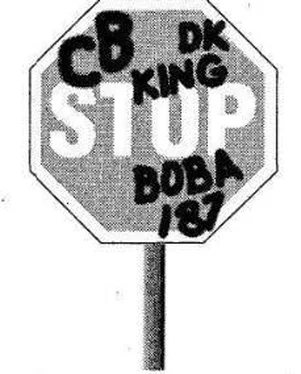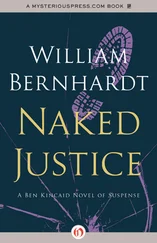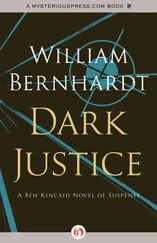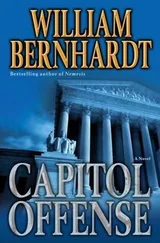“Oh yes. Since 1988, courts and legislatures in more than twenty-three states have made it possible to bring civil or criminal actions based upon recovered memories.”
“And have people done so?”
“I know of over three hundred lawsuits pending at this time involving repressed memories.”
Ben whistled. “I guess this isn’t all that uncommon, then.” He flipped to the next page of his outline, hoping the jury was getting the message.
“Well, it doesn’t happen every day, but evidence is mounting that it is far more frequent than we realize.”
“And when these people do finally remember what happened, do they typically try to … resuppress the memories?”
“That does sometimes happen, but that’s not the typical case. It is far better for the person to come forward with what they know. To cleanse themselves of it, so to speak. Only after the patient has retrieved the memory and integrated it in their conscious mind can the healing begin. Only then can the process of getting on with life become possible.”
“Thank you, Doctor. Nothing more at this time.”
Ben felt a wave of relief as he sat down. That had gone without a hitch. He had not only gotten his eyewitness to tell her story, he’d gotten a psychiatric expert to make it seem credible.
He patted Leeman on the shoulder. Things were looking up.
“Well, then, Mr. Kincaid,” Judge Hawkins said. “Call your next—”
“Excuse me.” It was Bullock, rising to his feet. “If I may ask just a few questions.”
“Oh—of course.” Hawkins seemed faintly embarrassed. He had assumed—much like Ben—that if the man hadn’t crossed the eyewitness, he wasn’t going to cross her expert either. It appeared they were both wrong.
“I don’t think this will take long,” Bullock said. He walked casually to the stand and positioned himself beside Dr. Allyn. “Doctor, you testified that a growing number of psychiatrists have come to believe that memories may be suppressed over long periods of time.”
‘That is correct.”
“Is this … the only viewpoint on the subject?”
The doctor shook his head. “Far from it. Many of my colleagues believe this whole idea of psychogenic amnesia is the biggest scientific blunder since Piltdown Man.”
“Really,” Bullock said, with what sounded to Ben suspiciously like feigned surprise. “Why would they say that?”
Dr. Allyn removed his glasses. “The problem is that no experiment has ever demonstrated empirically that this syndrome is real. Therefore, it cannot be proved. It is just a theory, not a fact. All the evidence is anecdotal, and it mostly comes from psychologists who have already presumed that the phenomenon exists.”
“Why would they do that?”
“Well, it’s a natural belief for a Freudian psychiatrist. It arises from the Freudian model of hysteria—which includes repression, the theory that we suppress what we cannot face. Unfortunately, over time, we have learned that Dr. Freud, brilliant though he was, had an extremely skewed scientific method. Very few of his findings are believed to be literally true today.”
“You mean, not every guy wants to sleep with his mother?” Bullock cast an ironic smile toward the predominantly male jury.
“Something like that, yes.”
“If this repression concept doesn’t really exist, how can you explain all these people who claim to have repressed memories?”
“If the theory is false, then these must be false memories.”
“Meaning … lies?”
“Not necessarily. Fantasies. Or hallucinations. Wish fulfillment.”
“But not reality?”
The doctor cleared his throat and looked directly at the jury. “No. Not reality.”
Ben rose an inch out of his chair. What the hell was going on here? Whose expert was he, anyway? Bullock was leading Allyn down the primrose path, and the learned doctor was following him blindly. In fact, he seemed to be going … willingly.
Bullock continued. “Surely a trained psychotherapist can distinguish a true memory from a false one.”
“That’s not as easy as you might think. You have to realize that even with true memories, remembering is not an act of reproduction. It is an act of reconstruction. As a person remembers, gaps and details are naturally filled in. Sometimes this accretion process occurs accurately. But sometimes not. Experiences can be altered as they’re hauled out of that gigantic file cabinet we call our brain.”
“Could those gaps in a person’s memory be filled in by the suggestions of other people?”
“Oh yes. Happens all the time.”
“So if a person with … let’s say … an erratic memory came to someone else”—Bullock glanced at Ben—“and that someone gave her all the details of a certain event the way he wanted people to believe it happened, she might well start remembering that what she saw occurred as he described it.”
Bullock had crossed the line from hypothetical to the present case. But that didn’t slow Allyn’s answer in the least. “That is correct.”
Bullock stepped away from the witness. “Dr. Allyn, you told the jury that you examined Carlee Crane, correct?”
“I interviewed her about this incident, yes.”
“Well … what did you think of her?”
Ben felt a sudden, painful pounding in his chest.
“I thought she was young. Good-natured. Sincere …”
Ben released his breath.
“… but misguided.”
Ben’s lips parted. His pulse raced.
“Misguided?” Bullock leaped on the word like a mongoose on the attack. “Does that mean she’s not telling the truth?”
“Oh no. I don’t think so.”
The spectators in the gallery began to stir.
“No,” Dr. Allyn continued, “she believes what she says, but that doesn’t mean it truly happened.”
Something was wrong here. Something was very wrong. No expert witness would do this. No paid professional witness would be such a shameless turncoat. No one would be so cooperative on cross-examination. Unless …
Unless that was what he had planned to do all along.
“As I said,” Allyn continued, “Ms. Crane is a very good-natured, nurturing, maternal person. She told me she read a newspaper account about this trial, and later saw something on television about it. I believe that when she was exposed to these media influences, she felt a natural empathy for the defendant. She wanted to help him, but she had no means of doing so. And so her subconscious mind created a memory.”
“A memory that would get him off the hook.”
“That’s correct.”
“Even though she never saw the murder.”
“That’s what I believe. She fabricated the entire incident.”
Ben turned and saw Carlee in the gallery, her hands pressed against her face. Her husband was trying to comfort her, without much success. The look on her face was heartbreaking. She was being humiliated in public, just as she had feared. Carlee stood and ran out of the courtroom. Her husband rose to follow.
His glaring eyes met Ben’s. The message was clear.
You should’ve prevented this.
This is your fault.
“Would Ms. Crane be the first person who ever fabricated a memory?” Bullock asked.
“Oh, far from it. I’ve been called in on several cases of purported juvenile sexual abuse, only to later find that the child wasn’t even living with the accused parent at the time the event supposedly occurred. In my office last week, a lady told me she woke up one morning and remembered that she had been abducted by a UFO and impregnated by aliens.”
Bullock slowly returned to his table. “Dr. Allyn, do you believe Carlee Crane was an eyewitness to the murder of Maria Alvarez?”
“No, I don’t. I’m sure she means well, but I don’t believe it”—he chuckled—“any more than I believed last week’s patient was carrying a Martian baby.”
Читать дальше







